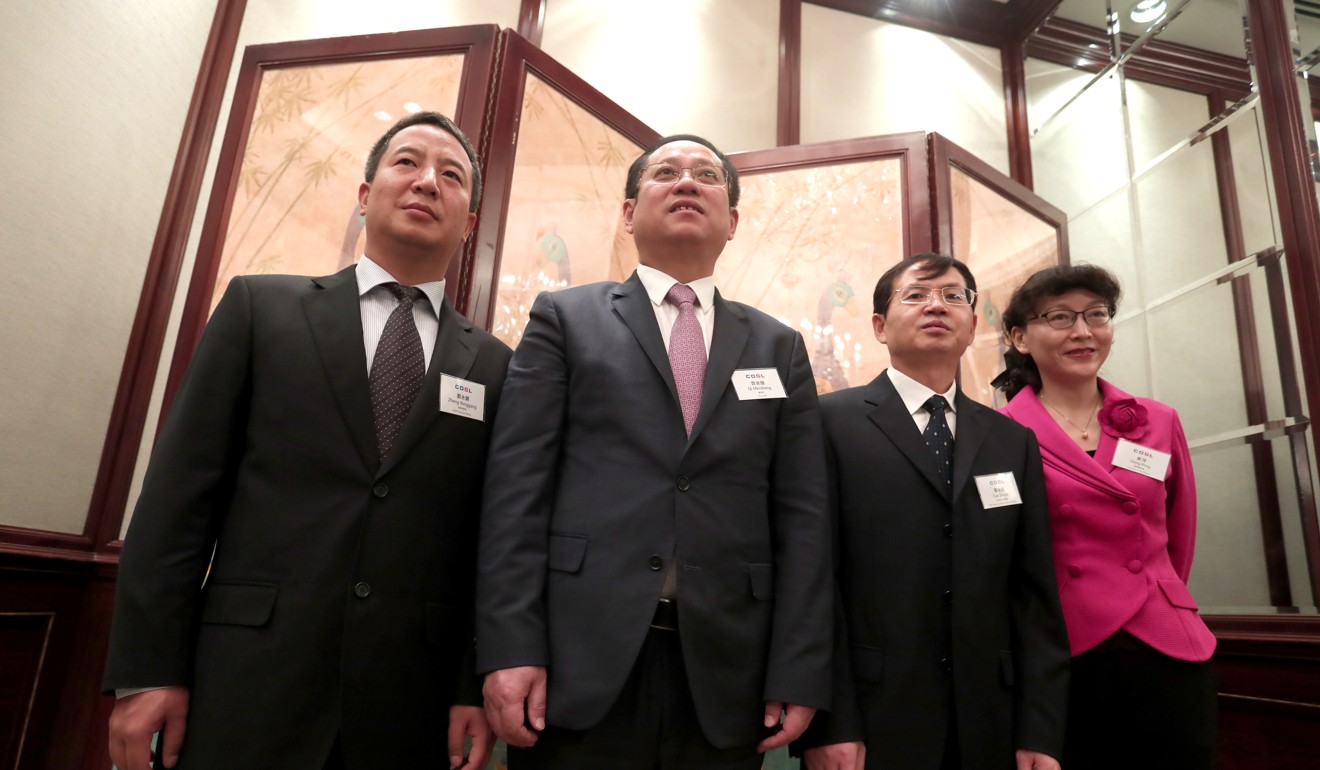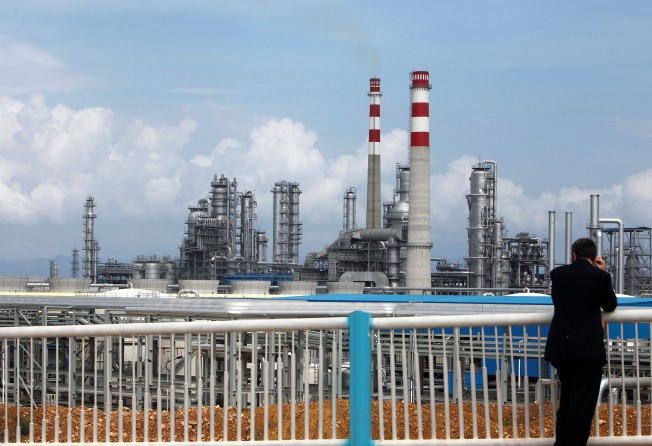
China oil giant CNOOC to lift output as trade war increases energy security worries
The company plans a 6.6 per cent rise by 2020, as the government seeks to reduce the country’s dependency on imported energy sources

CNOOC, China’s dominant offshore oil and gas producer, plans to boost output as part of a government initiative to lessen the country’s reliance on imported energy sources, particularly as a trade war with major supplier the US intensifies.
The firm is targeting oil and gas output of 500 million barrels of oil equivalent in 2020, up 6.6 per cent from 469 million boe last year and above this year’s target of 470 million to 480 million boe, it said on Thursday, after announcing a rise in first-half profit.
China’s foreign oil dependency ratio could rise to almost 70 per cent this year from 67 per cent last year and 64 per cent in 2016 as rising demand cannot be met by domestic output, according to CNPC Research Institute of Economics and Technology.
At the same time, natural gas import dependency – which rose to 39 per cent last year from 29 per cent in 2012 – will increase further this year as consumption of the cleaner-burning fuel to fight air pollution grows much faster than domestic output.
US exports of crude oil to China surged 144.7 per cent year on year in the first half to US$4.37 billion, while those of liquefied natural gas (LNG) jumped 210 per cent to US$351 million, according to the US Census Bureau.
The government has ordered state energy firms to increase output to help enhance national energy security, according to statements posted on the websites of CNOOC’s parent China National Offshore Oilfield Corp and PetroChina’s parent China National Petroleum Corp early this month.
Beijing early this month proposed slapping a 25 per cent duty on US LNG if the US broadened its tariffs on Chinese goods, but has so far refrained from doing so on US crude oil.

As part of its plans to improve output, CNOOC said it would attempt to cut the natural annual production decline rate – the speed at which production falls without intervention – at its largest oilfield in Bohai Bay, northern China, to less than 10 per cent from 14 per cent.
CNOOC posted a 56.8 per cent year-on-year rise in net profit to 25.5 billion yuan (US$3.7 billion) for the first half, amounting to 46.3 per cent of the 55 billion yuan average estimate for full-year earnings by 20 analysts polled by Bloomberg.
The gain was helped by a 33.6 per cent rise in the average price of oil and a 13 per cent increase in gas prices. The cost to pump each barrel of oil edged up 0.3 per cent to US$31.83 after falling in the previous three years. An interim dividend of 30 HK cents was declared, up from 20 cents last year.
On Wednesday, CNOOC’s sister firm and its largest domestic drilling services supplier, China Oilfield Services (Cosl), posted a first-half net loss of 375 million yuan, compared to a loss of 385.2 million yuan in the year-earlier period, even as revenue grew 14.4 per cent to 8.14 billion yuan thanks to greater work volume.
Its loss was due to depressed service fees and a 123 million yuan fixed asset write-down at its Singapore unit as the estimated recoverable value of its assets fell below their book value.
The utilisation rate of its drilling rigs in the first half rose to 66.9 per cent from 54.6 per cent a year earlier, but it could not offset the negative impact of 16.2 per cent to 22.3 per cent falls in drilling fees, it said.